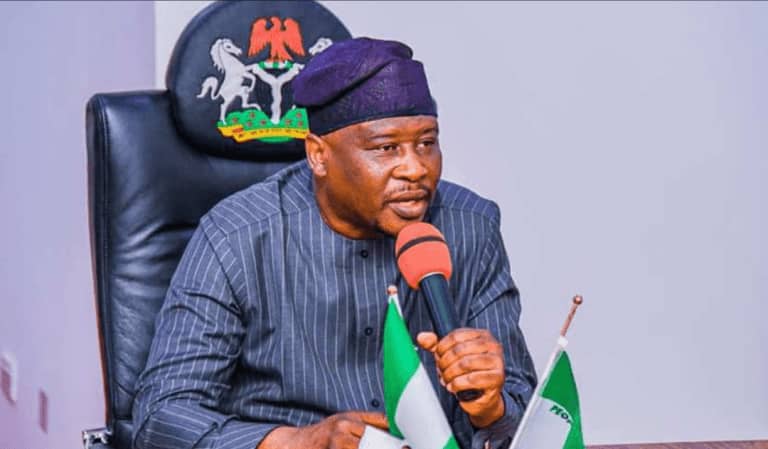From Joseph Asegba, Yola
Governor Ahmadu Fintiri of Adamawa State has unveiled the state’s new Education Policy, aimed at addressing the challenges of inadequate infrastructure, low enrollment, and high dropout rates. The policy is designed to create an inclusive, equitable, and high-quality educational framework.
Represented by his Deputy, Professor Kaletapwa Farauta, Governor Fintiri explained that the policy was developed after extensive consultations with stakeholders and a thorough analysis of the state’s educational landscape. It incorporates both national and international best practices to promote quality education by addressing disparities in access, participation, and outcomes.
The Governor emphasized that the new policy would ensure that education meets the needs of individuals, communities, and the labor market. The policy aims to produce graduates who are employable and capable of contributing to the state’s growth.
“We are filled with immense joy as we launch this document, ensuring that every child in Adamawa State has access to quality learning opportunities,” he said.
He further stated that his government would support the implementation of the policy, which would serve as a strategic roadmap guiding government efforts to deliver quality education to the state’s children.
Among the policy’s key goals are improving access to quality education, enhancing teacher quality, strengthening school infrastructure, promoting early childhood education, and encouraging girls’ education.
Earlier, the Commissioner for Education and Human Capital Development, Dr. Umar Garba-Pella, described the policy launch as a reaffirmation of the current administration’s unwavering commitment to education as the cornerstone of the state’s progress and prosperity. He stressed that the policy reflects the government’s resolve to ensure that no child, regardless of background, is left behind in the pursuit of academic excellence.
Dr. Garba-Pella added that the decision to create a state education policy was one of the products identified by the advisory group. He also noted that the process involved collaboration with partners, including the appointment of a consultant who conducted a study and submitted a first draft. The draft was then discussed in an expanded meeting of key stakeholders in the education sector before being validated.
On his part, the Executive Director of the Center for Advocacy, Transparency, and Accountability Initiative (CATAI), Abubakar Muazu, pledged to support the state in implementing the policy.


